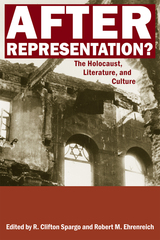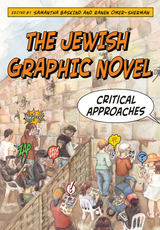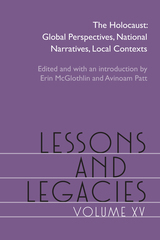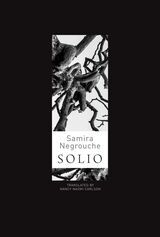
As experts in the study of literature and culture, the scholars in this collection examine the shifting cultural contexts for Holocaust representation and reveal how writersùwhether they write as witnesses to the Holocaust or at an imaginative distance from the Nazi genocideùarticulate the shadowy borderline between fact and fiction, between event and expression, and between the condition of life endured in atrocity and the hope of a meaningful existence. What imaginative literature brings to the study of the Holocaust is an ability to test the limits of language and its conventions. After Representation? moves beyond the suspicion of representation and explores the changing meaning of the Holocaust for different generations, audiences, and contexts.

The Jewish Graphic Novel is a lively, interdisciplinary collection of essays that addresses critically acclaimed works in this subgenre of Jewish literary and artistic culture. Featuring insightful discussions of notable figures in the industryùsuch as Will Eisner, Art Spiegelman, and Joann Sfarùthe essays focus on the how graphic novels are increasingly being used in Holocaust memoir and fiction, and to portray Jewish identity in America and abroad
Featuring more than 85 illustrations, this collection is a compelling representation of a major postmodern ethnic and artistic achievement.

New research on Holocaust literature continues to unearth unexamined texts from the period of the war itself, which can shed light on Jewish responses to persecution and strategies for survival. The study of Holocaust testimonies continues to grapple with the challenge of language: how to convey through the limits of human language the depths of barbarity to an audience that could never fully understand what they had not personally experienced. Likewise, literary studies continue to incorporate texts that were once considered outside the standard canon of Holocaust literature, such as science fiction and children’s literature.
The tension between local and global perspectives can also be seen quite clearly in what the volume's editors understand by the term “memory studies,” or new approaches to research on museums and memorials. The very specific nature of collective memory on the national level continues to be the site of the contested “politics of memory.” A number of the chapters in this volume engage with the conflict of monuments and memorials, museums’ attempts to resolve provenance issues, questions around the ethics of Holocaust tourism, and the inclusion of new technologies and digital survivors into the memorial landscape.
READERS
Browse our collection.
PUBLISHERS
See BiblioVault's publisher services.
STUDENT SERVICES
Files for college accessibility offices.
UChicago Accessibility Resources
home | accessibility | search | about | contact us
BiblioVault ® 2001 - 2024
The University of Chicago Press









